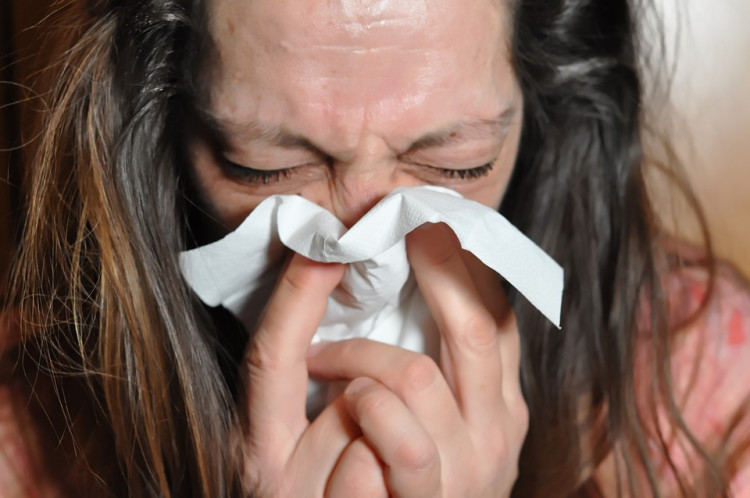The United States is experiencing a significant resurgence of whooping cough cases, with infection rates reaching the highest levels seen in nearly a decade. The Centers for Disease Control and Prevention (CDC) reported Thursday that pertussis cases, commonly known as whooping cough, are climbing rapidly across the country, particularly as students return to school.
According to CDC data, 291 cases were reported during the week ending September 14, with states like New York, Ohio, Pennsylvania, and Oklahoma seeing substantial spikes in infections. This marks the largest weekly increase since 2015, reflecting a broader national trend. In total, more than 14,500 cases of pertussis have been reported so far this year, a fourfold increase compared to the same period in 2023.
Pertussis is a highly contagious respiratory disease caused by the bacterium Bordetella pertussis. The infection typically begins with cold-like symptoms, progressing to severe coughing fits that can last for weeks or even months. The disease is characterized by a "whooping" sound as patients struggle to breathe between bouts of coughing. The infection can be especially dangerous for infants and young children, who are at the highest risk of severe complications or even death.
Experts have raised concerns about the current rise in cases, especially in light of the COVID-19 pandemic, which suppressed the spread of many airborne diseases through lockdowns and social distancing measures. "We're now seeing a rebound in whooping cough, likely due to a combination of factors, including lower vaccine uptake during the pandemic and the waning immunity from earlier vaccinations," said Dr. Erica Rankin-Riley, spokesperson for the Oklahoma State Department of Health, which has seen a steep increase in infections.
Several factors contribute to the resurgence of pertussis. Federal health officials point to the effectiveness of the current generation of vaccines as one possible issue. While vaccines remain the best defense against the disease, the acellular pertussis vaccine introduced in the 1990s, which triggers fewer side effects, is less effective over time compared to older vaccines. "The vaccines we use today are much safer but less durable, meaning immunity can wane, leading to more breakthrough infections, particularly in older children and adults," said Dr. Tim Murphy, an infectious disease expert.
Outbreaks have been especially prevalent among high school students. In Pennsylvania, where one of the country's largest outbreaks is occurring, health officials are seeing significant transmission among teenagers. "Many of these outbreaks began over the summer, even before schools reopened, but we are expecting to see continued increases now that students are back in the classroom," the Pennsylvania Department of Health noted in a statement.
New York has also reported a surge in cases, particularly among adolescents aged 15 to 19. The state's health department said nearly 40% of cases outside New York City this year have been among teenagers, without any clear clusters or specific events linking the cases. "We are seeing infections spread across different areas and settings," said a spokesperson for the New York State Department of Health.
Despite the rising cases, health experts emphasize the importance of vaccination. The CDC recommends a series of pertussis vaccines for children, starting with the DTaP vaccine at two months of age, followed by booster shots at regular intervals. For older children and adults, the Tdap booster is recommended every 10 years to maintain immunity. However, CDC data from 2022 shows that only about 39% of adults have received their Tdap booster within the last decade, leaving many vulnerable to infection.
Efforts to develop more effective vaccines are ongoing. The U.S. Food and Drug Administration (FDA) is currently considering human challenge trials, in which vaccinated volunteers would be intentionally exposed to the bacteria to test new pertussis vaccines. This method could accelerate the development of more effective immunizations that provide longer-lasting protection.
In the meantime, public health officials are urging families to take additional precautions. "Handwashing, staying home when sick, and avoiding contact with infected individuals are critical steps in preventing the spread of whooping cough," said Dr. Rankin-Riley. These measures are especially important for protecting vulnerable populations like infants, who may not yet be fully vaccinated, and older adults, whose immunity may have waned.
The resurgence of whooping cough also highlights concerns over potential mutations in the pertussis bacteria. Some strains may be evolving in ways that make them harder to control with existing vaccines. "We are closely monitoring for any changes in the bacteria that could contribute to rising case numbers, but it's clear that vaccine immunity fades over time," said the FDA in a briefing ahead of a scheduled meeting to discuss vaccine updates.






